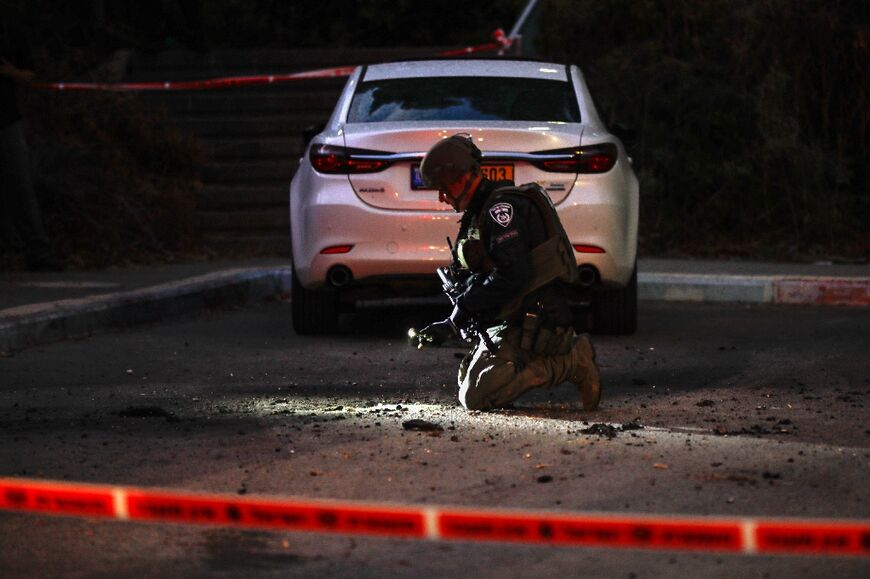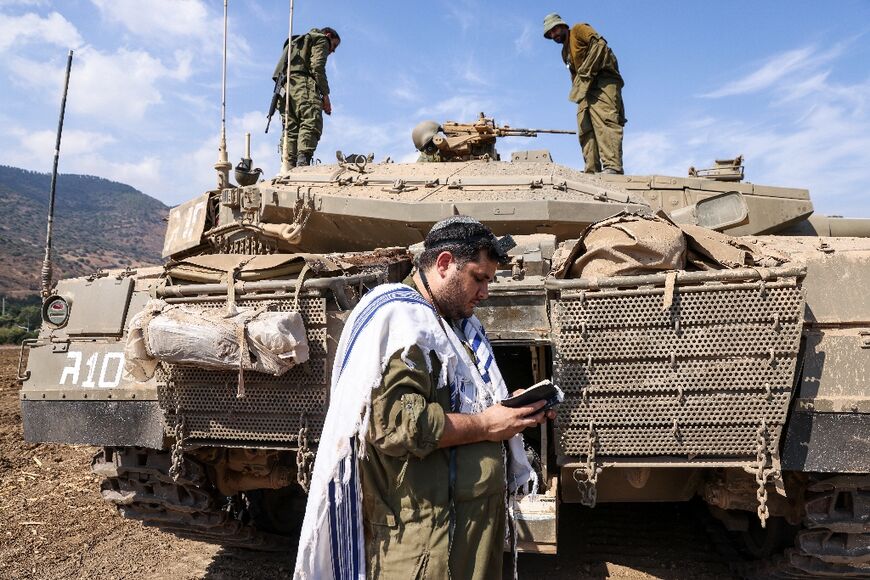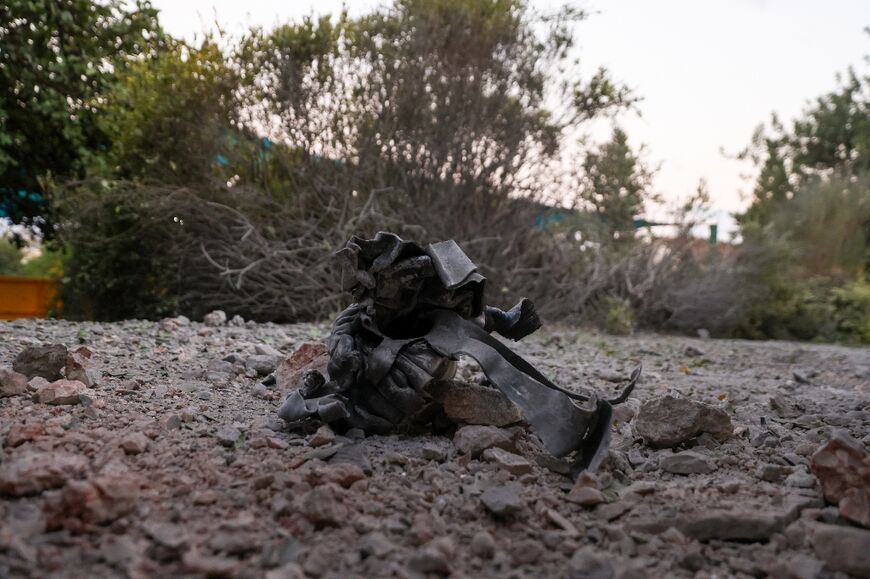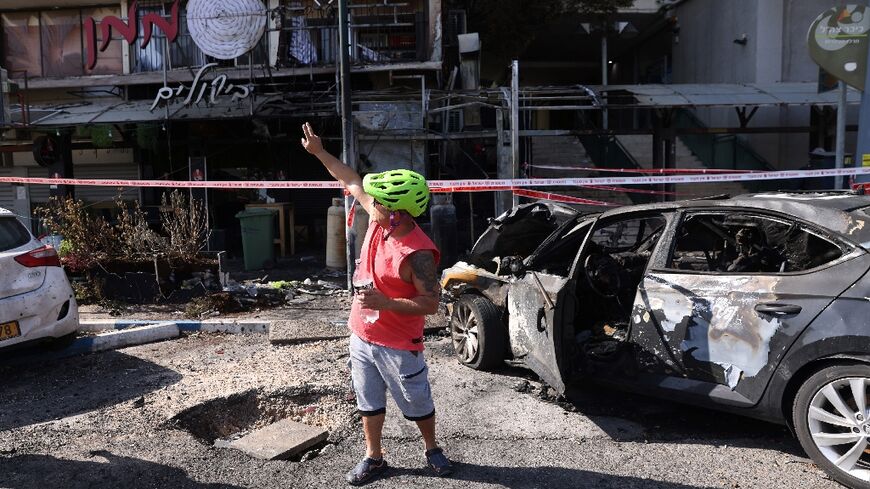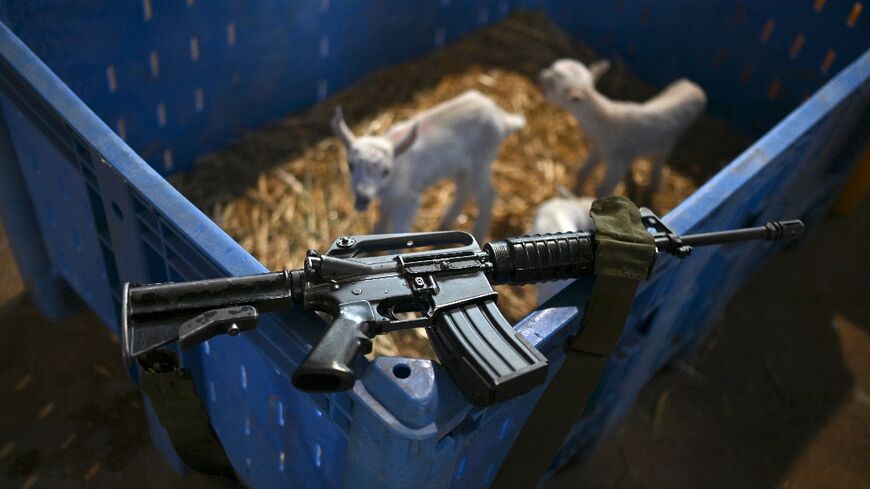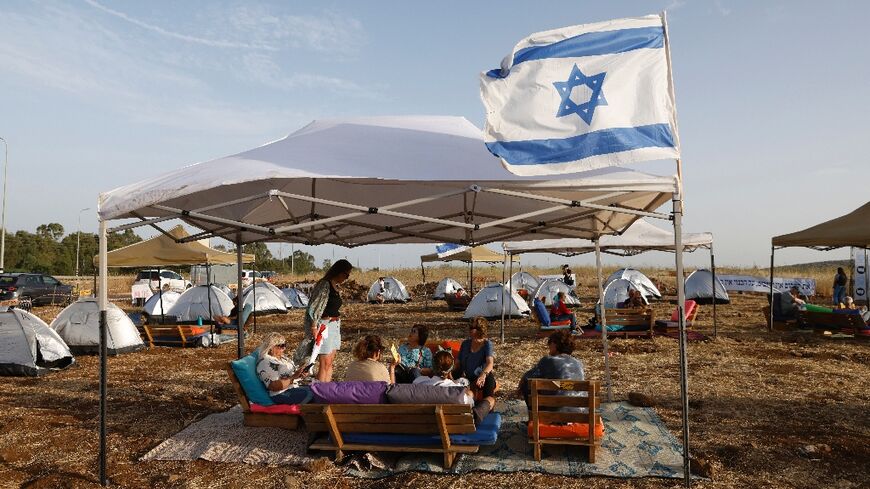Soldiers rally, locals flee as Israel northern border heats up
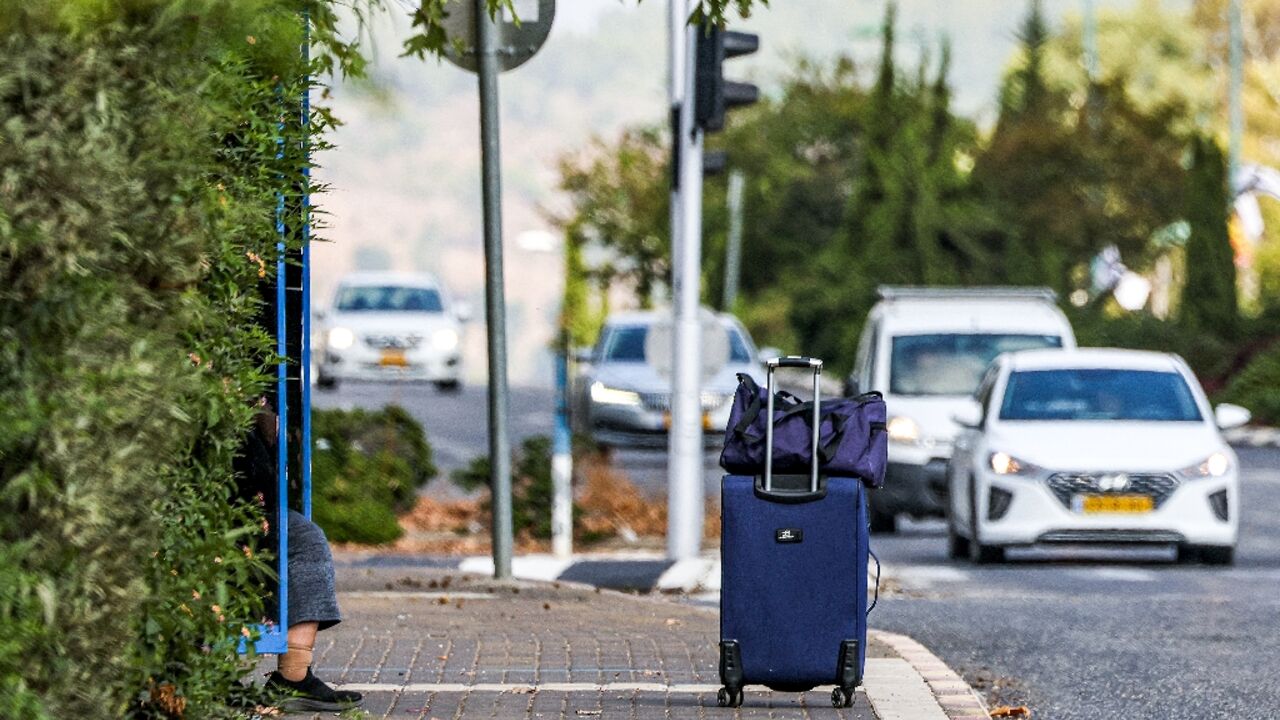
Soldiers are everywhere and the last residents are hurriedly packing in the northern town of Kiryat Shmona where Israel fears Lebanon's Hezbollah could open up a second front in its war with Hamas.
As smoke rises from the nearby wooded hills following the latest cross-border exchanges, soldiers in fatigues can be seen eating sandwiches on cafe terraces, buying bandages in pharmacies or emerging in groups from the bus station.
In an extremely rare measure, Israeli authorities on Friday announced the evacuation of this town by the Lebanese border which is home to some 25,000 residents, many of whom have already left.
Hamas militants stormed into Israel from Gaza on October 7, beginning an attack that has killed at least 1,400 people, mostly civilians who were shot, mutilated or burnt to death on the first day, according to Israeli officials.
Since then, more than 4,100 Palestinians, mainly civilians, have been killed in relentless Israeli bombardments, according to Gaza's Hamas-run health ministry.
All the while, there have been increasing exchanges of fire along Israel's northern border between Israeli forces and Hezbollah, an Iran-backed ally of Hamas. And Hamas' armed wing has also claimed some of the cross-border strikes.
"We're waiting to find out where they want us to go," 16-year-old Lianne Abutbul told AFP as her family weighed up whether to evacuate.
- 'Ready to fight' -
In Shlomi, another border town to the west, 7,000 of its 9,000 residents have left in the past 10 days, said Yossef Luchy who heads the town council.
"Here the last house is 150 meters (500 feet) from the border (area), so we had an evacuation plan and the people who were worried left," said Luchy, former head of the northern district of Israel's homefront command.
On Monday, Israel's defence ministry ordered the evacuation of 28 villages and kibbutzes situated within two kilometres (about a mile) of the Blue Line, the border demarcated by the UN following Israel's withdrawal from southern Lebanon in 2000.
Residents of other villages have also left, AFP journalists found.
The Israel Democracy Institute estimates that at least 300,000 people have been evacuated from their homes in Israel since the start of the war.
"Here, those who stayed are mostly former army personnel, and we are constantly preparing. We keep an eye on the shelters, we train," said Luchy.
Of the 360,000 reservists called up by Israel, many have been deployed to the increasingly tense 120-kilometre (75 miles) border.
One of them, who requested anonymity, told AFP that he was "ready to fight" because "the Jews have no other country".
An attack on Israeli military positions near the border killed two people on Tuesday, the army said, and in southern Lebanon, at least 22 people have in died in exchanges of fire.
Most were fighters, but four were civilians, one of whom was Reuters journalist Issam Abdallah, who died in a strike that wounded six other journalists, including two from AFP.
- 'It's really scary' -
The few remaining inhabitants of Kiryat Shmona admit to having mixed feelings about staying, and are afraid when they hear sirens warning of a rocket attack.
Abutbul said when Israel's Iron Dome anti-missile system intercepted rockets on Wednesday, "debris fell two blocks from my house, in a school playground".
"It could have killed children, it's really scary," said the teenager, whose two brothers are currently in the army.
Yaacov Kozikaro, 72, has lived near the border since 1961 and experienced two previous wars with Lebanon in 1982 and 2006, memorials of which are scattered across Israel's northern landscape.
"This is neither the first nor the last war," he says with a laugh, saying he has no plans to leave, despite Israel's "bad neighbours".


